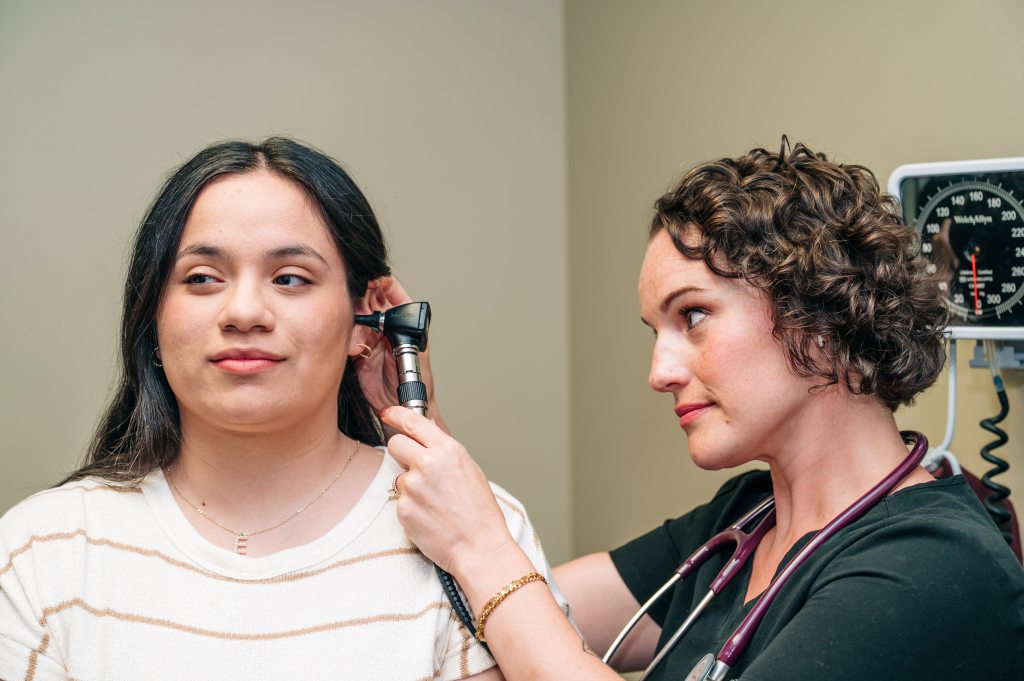The endocrinologists at UAB St. Vincent’s provide advanced care for all types of endocrine disorders, including diabetes.
Endocrine disorders are caused by glands in the body producing too much or too little of a hormone. This can affect metabolism, growth, mood, reproductive functioning, and other processes.
Our endocrinology experts diagnose and treat conditions such as:
- Adrenal insufficiency and Addison’s disease
- Cushing’s syndrome
- Cystic fibrosis and related endocrine disorders
- Diabetes (type 1, type 2 and type 1.5)
- Gestational diabetes (diabetes during pregnancy)
- Graves’ disease
- Growth hormone deficiency in the pituitary gland
- Hashimoto’s disease
- Thyroid disease, including hypothyroidism and hyperthyroidism
Complete diabetes care
Diabetes and gestational diabetes are endocrine disorders that affect insulin levels in the body. Diabetes can be inherited or caused by diet and lifestyle choices. It also can be related to other health conditions such as heart disease, high blood pressure, and being overweight.
If left untreated, diabetes can affect the heart, blood vessels, eyes, kidneys, and nerves over time. Your doctor can discuss your risk for developing prediabetes and if there are weight management options that may help.
Our endocrinology care team helps adult, teen, and pediatric patients manage their diabetes and related conditions, such as diabetic foot ulcers, changes to vision and hearing, and kidney and heart health. Some of these management strategies include:
- Blood sugar monitoring
- Diabetes education and support
- Dietary guidance
- Insulin administration and personalized instruction
- Insulin pump therapy
- Targeted medication therapies, including type 2 diabetes resistance inhibitors
We offer diabetes self-management programs that focus on physical and emotional health. Our certified diabetes instructors help patients understand their condition, monitor their blood glucose at home, administer medication, and make healthier food choices.
Care navigation
As part of your care, you may require lab tests, pharmacy support, and consultations with a registered dietitian and other specialists. Your care team will connect you these and other support services, including diabetes nurse educators.
Recent News
View All News



